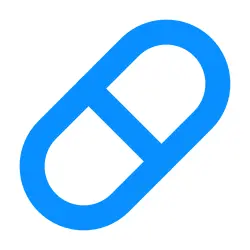Treatments (0)
Advice for PrEP
Patients who don't already have HIV but are at high risk of contracting the virus in the future are more likely to benefit from PrEP. Sexually active people and substance users who share needles are good candidates for the drug.
Several factors raise the likelihood of HIV infection, including:
Having sex with a person who is infected
Possessing multiple sexual partners
Sharing a person's infected needles or syringes
Being infected with gonorrhea and/or herpes, among other STIs
Having sex with a person who is already ill
A clnician can provide you PrEP medicine if any of these risk factors apply to your case. PrEP is used to stop infection during pregnancy and breastfeeding if you intend to become pregnant from an infected individual. The ideal way to utilize this drug is to consult a clinician before beginning the course of treatment.
Safe use of PrEP. People who are HIV-negative and have taken PrEP for up to five years have not had any severe health impacts.
Some PrEP users may experience adverse reactions including as nausea, diarrhea, headaches, tiredness, and stomach pain. Most of the time, these side effects are minor and disappear with time. If you experience any side effects while taking PrEP that bother you or do not go away, let your clinician know.
And remember: PrEP only protects you against HIV; it does not shield you from other STIs or other illnesses. PrEP and condoms together will lower your chance of contracting further STIs.
When used as pre-exposure prophylaxis, Tenofovir disoproxil and Emtricitabine are efficient at lowering the prevalence of the human immunodeficiency virus (HIV) (PrEP)
Emtricitabine and Tenofovir are recommended for use as pharmacological pre-exposure prophylaxis in conjunction with other safer sex practices for HIV-negative people (18 years of age and older) who are at high risk of contracting HIV-1 through sexual contact.
You can employ techniques like abstinence (not engaging in sexual activity), never sharing needles, and consistently using condoms as directed. Additionally, you might be able to benefit from HIV preventive treatments including pre- and post-exposure prophylaxis (PrEP) (PEP). There are various steps you can take if you have HIV to stop spreading the disease to others.
PrEP FAQs (5)
If you haven't already discussed PrEP with your doctor, do so if you have an HIV-positive partner and are thinking about becoming pregnant. While trying to become pregnant, while you are pregnant, or while you are breastfeeding, PrEP may be an option to help protect you and your child from contracting HIV.
Yes. Adolescents without HIV who weigh at least 77 pounds (35 kg) and are at risk of contracting HIV via intercourse or injecting drugs are permitted to use PrEP tablets. Adolescents at risk of contracting HIV through intercourse are permitted to receive PrEP shots.
Although PrEP is safe, some people do have negative effects such stomach pain, nausea, headaches, and diarrhoea. Over time, these adverse effects typically disappear.
Birth control or contraception like the pill, patch, ring, shot, implant, or IUD do not interact with PrEP. Utilizing both at once is safe.
PrEP offers protection against HIV, but it does not offer protection from other STDs or stop pregnancies.
Other STDs like gonorrhea and chlamydia that can be spread by genital secretions can be avoided with the use of condoms.
Condoms are less efficient in preventing STDs like syphilis, genital herpes, and the human papillomavirus that can spread through cuts or sores on the skin.

